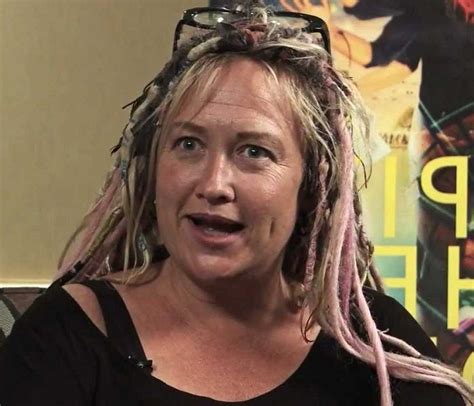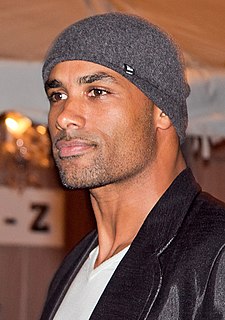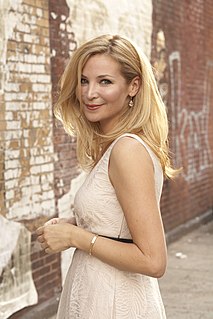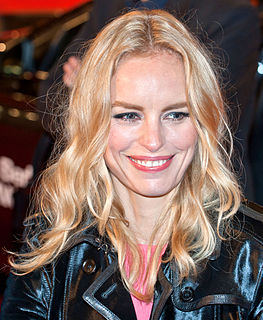A Quote by Albert Brooks
I think anger and laughter are very close to each other, when you think about it.
Related Quotes
Even in my comedies, I don't take anger as a joke. I think anger and laughter are very close to each other, when you think about it. One of the things I like about a character: I always think it's fascinating when a character can turn on a dime and go from one emotion to another. I like watching that.
I think that laughter is very close to terror and horror. Maybe that's just me, but that sort of all - over rush that happens when you are either laughing or terrified or weeping...? I think that comedians, in and of themselves, make other people laugh because they aren't necessarily the happiest people in the world. So they know a lot about dark things.
One nice thing about being a woman in Hollywood is that the women tend to be very close-knit. All of us writers and directors know each other and cling to each other for safety and support, and it's really a completely different vibe than the men experience out here, where they're all trying to murder each other.
We live in a culture that wants to put a redemptive face on everything, so anger doesn't sit well with any of us. But I think women's anger sits less well than anything else. Women's anger is very scary to people, and to no one more than other women who think: Oh, goodness, well, if I let the lid off, where would we be?
We (Derek Jeter and I) want to kill each other. I think we both drive each other and motivate each other. But, when we're off the field, we're like family. I think the nice thing about it is we became good friends before we even mad it to the big leagues. That makes it more of a healthy relationship.
I mean, if we're concerned genuinely with writing, I think we probably get on with our work. I think this is very true of English writers, but perhaps not so true of French writers, who seem to read each other passionately, extensively, and endlessly, and who then talk about it to each other - which is splendid.
I don't believe in marriage. I think at worst it's a hostile political act, a way for small-minded men to keep women in the house and out of the way, wrapped up in the guise of tradition and conservative religious nonsense. At best, it's a happy delusion - these two people who truly love each other and have no idea how truly miserable they're about to make each other. But, but, when two people know that, and they decide with eyes wide open to face each other and get married anyway, then I don't think it's conservative or delusional. I think it's radical and courageous and very romantic.
If there's a feeling you have, other people have it. If there's something weird about your life, other people have lived it. If there's something kooky about your body, other people have that, too. We're not alone. There's some kind of tremendous relief in that and I think it can only be expressed in belly laughter. This tremendous relief that happens the millisecond we realize, it's not just me. That's what good laughter is about. It's about knowing that you're not alone.
I think that storytelling and creation are very close to what the center of what magic is about. I think not just for me, but for most of the cultures that have had a concept of magic, then the manipulation of language, and words, and thus of stories and fictions, has been very close to the center of it all.
We really have a close friendship with Christian Petzold, which means we can be more frank and open towards each other, always with total respect. But, we push each other a bit further and further always, and we're always still curious about each other. And when he talks about a story he's thinking of doing, then the whole process is so special because I'm involved in a very early stage and I have the feeling I can, and not only, influence anything about my character, but about the whole story that my character's in.



































